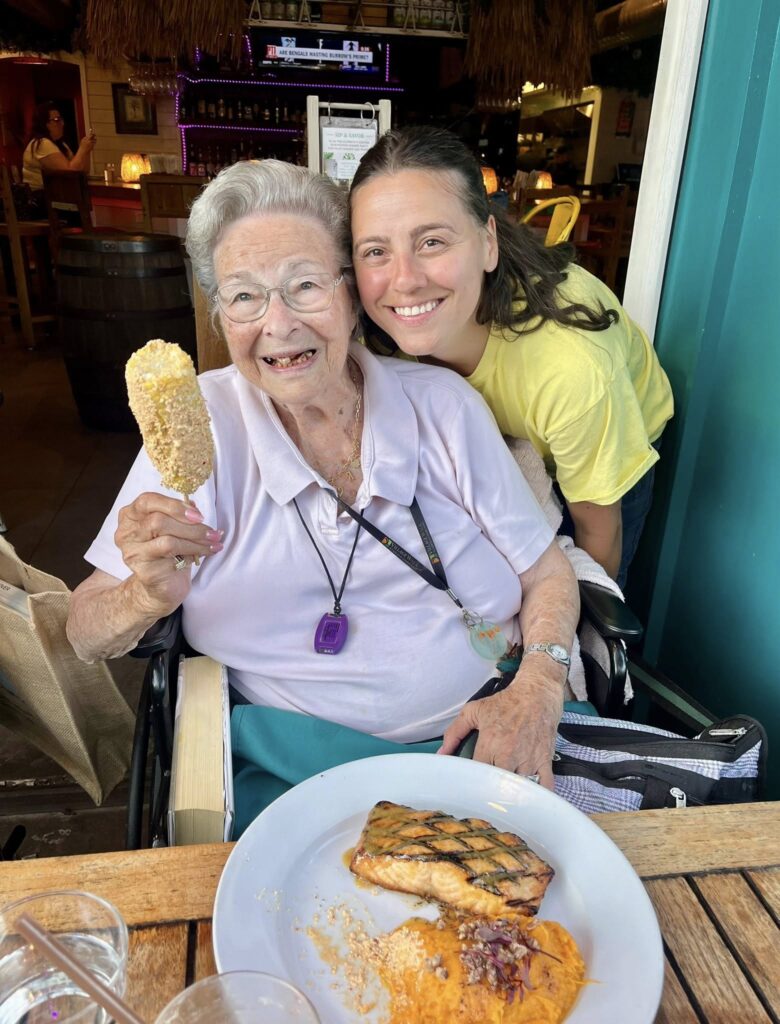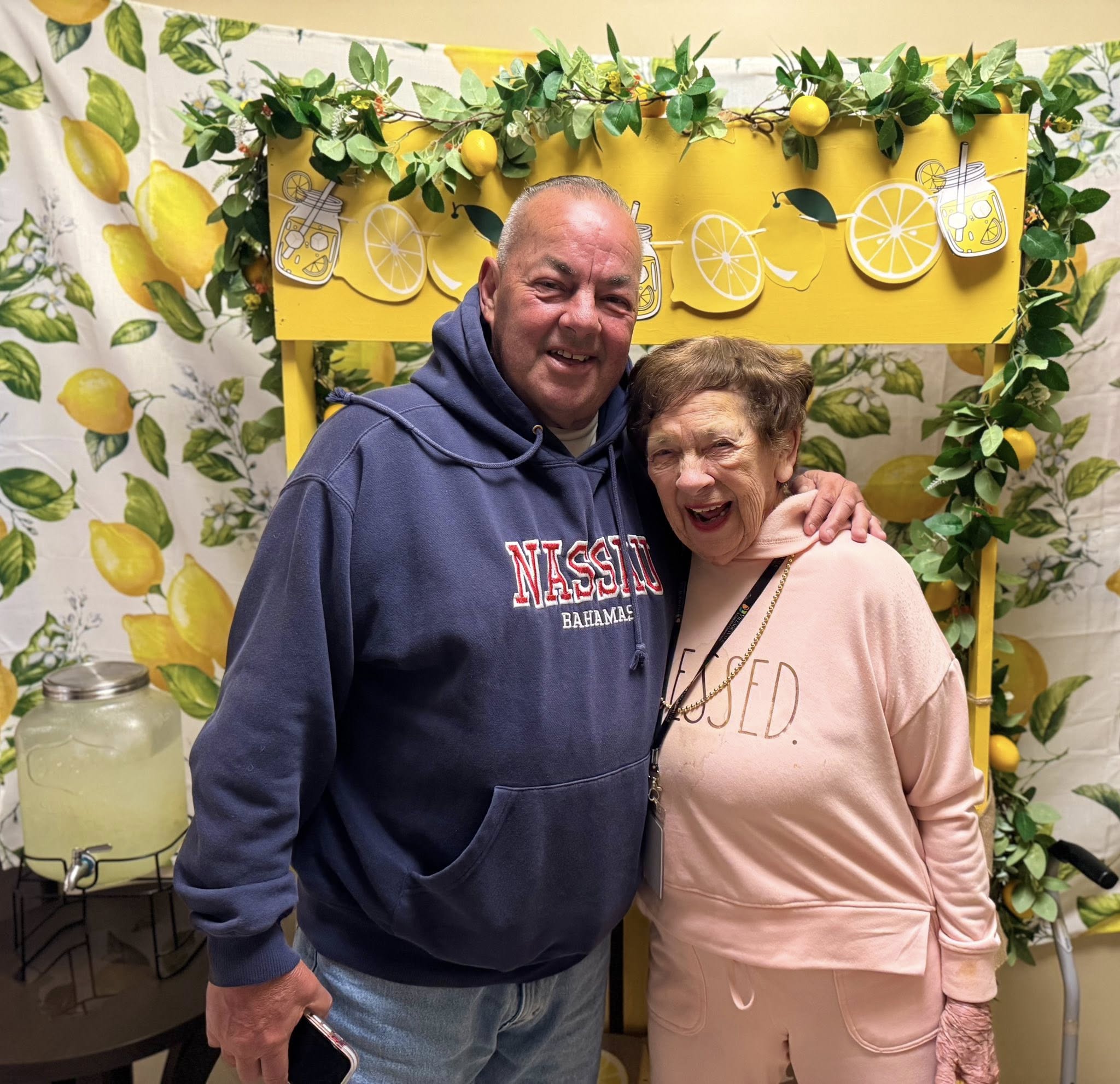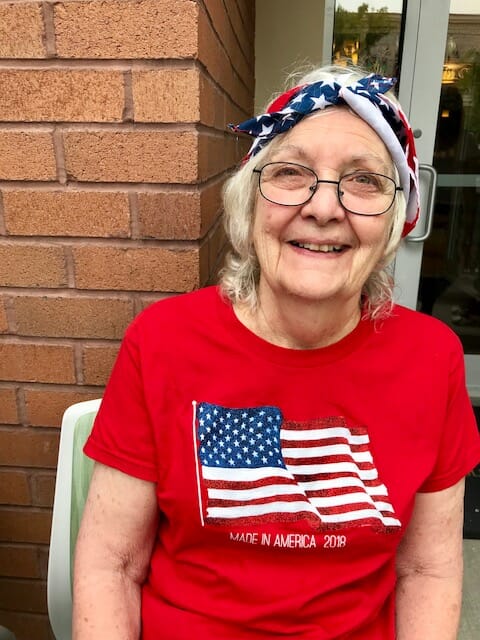So, you know that you’re looking into assisted living, but you’re not exactly sure where to start. How do assisted living facilities work? You might wonder.
And, what’s included in assisted living facilities? With the market for assisted living expected to grow over the next five years, according to MordorIntelligence.com (2025), more options mean more questions.
We understand that finding helpful information about assisted living isn’t always so clear-cut. We’re here to help you find the right information so you can make a clear-cut decision.
Village Walk senior living here. In this article, we’ll discuss how assisted living facilities work, including:
- What seniors’ rights are and what they’re entitled to at an assisted living facility
- Common living arrangements, floor plans, services, and amenities at an assisted living facility
- Costs and fees associated with assisted living facilities
- The quality of care associated with assisted living facilities
- Resources to help you understand how assisted living works
Seniors’ rights at a senior care assisted living facility

Who is best suited for assisted living facilities? Seniors who are still able to do tasks on their own. Although this type of senior might be independent, assisted living facilities will provide them with quality care to support with tasks like medication management, bathing, dressing, and eating.
The safe and supportive environment of an assisted living facility allows seniors to receive the help when they need it for all dimensions of wellness, while still allowing independence.
Some of the rights that seniors in assisted living facilities have access to include:
- The right to be treated with dignity and respect
- Freedom from being abused or neglected
- Respect for their spiritual and religious viewpoints
- Privacy and personal space
- Managing their financial affairs
- Freedom from discrimination
- The right to a safe, accessible, and comfortable home
While not an all-encompassing list, long-term care facilities provide personal care and supportive services that support the well-being of their residents.
Assisted living facility’s living arrangements, services, and amenities

Assisted living facilities provide quality living arrangements, services, and amenities to older adults.
Most assisted living facilities are furnished with the comforts of a modern home, such as kitchens, living and dining areas, and private or shared rooms, depending on the resident’s preference.
Residents may choose from residential living spaces such as one-bedroom apartments, studio apartments, dorm-style pads, and more.
Some residential care communities even provide extra services for residents in need, such as physical therapy or outings into town.
Usually, the standard services assisted living communities provide their residents include:
- Help with daily routines such bathing, grooming, dining, and administering medication
- 24/7 security inside and out of the facility
- Group exercises
- Wellness and recreation activities
- Physical, occupational, and talk therapy
- Housekeeping and maintenance services
- Laundry
- Complimentary transportation to and from medical and recreational appointments
- Memory care activities
- Emergency calls and systems
Of course, every facility differs in its offerings. Depending on the facility, recreational directors will also create activities based on residents’ interests.
Assisted living costs associated with long-term care facilities

The costs of assisted living care services depend on the facility. The most basic price usually includes the services mentioned above.
But, if your loved one needs other services — such as hair, nails, or specialty care — you can expect to pay a little more.
For many of our residents, families speak with our management team regarding the pricing of extra services. With that being said, assisted living facilities tend to cost less than nursing homes since assisted living facilities provide housing and basic care to seniors.
The size, location, and living arrangements of a facility affect the total cost of assisted living facilities. Help is always available, though.
For example, government programs such as Medicaid, Social Services Block Grants, or Supplementary Security Income can help cut the costs of assisted living. In fact, a few states also allow you to use tax-exempt bonds or Low-Income Housing Tax Credits (LIHTCs) to cover the costs of assisted living.
Have long-term care insurance? No problem.
Long-term care insurance can also help cover the costs of assisted living facilities. With that being said, you won’t be able to use Medicare to cover the costs.
Nevertheless, financing options exist to help residents and their families pay for assisted living.
The quality of care with assisted living facilities

“What type of care can my finances get me?” You might wonder. The truth is that the quality of care with assisted living facilities depends on the policies and regulations of the facility.
As assisted living communities increase in number, most states and municipalities have worked to create regulatory systems, tweaked their systems, and/or raised administrative and staff qualifications.
With that being said, the quality of care will depend on the above-mentioned factors. Other factors that affect the quality of care in assisted living facilities include
- The cost of facility management
- The number of years the staff has with handling residents in assisted living
- The staff’s educational background and experience
- The staff’s preference for professional development (think: participation in training and seminars to stay up to date with techniques and activities that help improve care to residents).
Furthermore, the quality of care also depends on the number of staff hired, the services offered, the number of residents in the community, and the size of the facility.
Common staff members at living and skilled nursing care facilities include caregivers, nutritionists, administrators, physical therapists, medical teams, wellness and health directors, and beauticians hired at the facility.
As you consider assisted living facilities, we recommend keeping in mind the following questions that can affect the quality of care you and your loved one will receive:
- Can the staff cater to the scheduled needs of their residents with minimal delays?
- How about the unscheduled, last-minute needs of seniors?
- How does the staff answer questions raised by family members?
- What are the qualifications and certifications held by the staff?
By clarifying the answers to these questions, you can place yourself and your loved one to receive higher-quality care.
A Village moment
American Health Front is the longest-running medical news program on network television regarding American health. American Health Front has been educating households across the country about health outcomes since 2002.
We were lucky enough to work with them!
This quick two-minute video gives you just a small taste of everything Village Walk’s assisted living community has to offer to seniors and their families. For more pictures about our community, services, and amenities offered to our residents, check us out on our social media account.
Need more information about assisted living?

If you’re looking for more information with long-term care services, personalized care, or the levels of care and daily living conditions of assisted living communities, we invite you to stop by for a complimentary tour of our facility.
Our caregivers have more than 20 years of experience providing loving, compassionate, and quality senior care and support for residents with dementia and a host of other conditions. Best of all, our memory care caregivers are available around the clock when residents need assistance late at night.
If you feel you’re not able to provide help for your loved one’s care needs at home without extra care — and they need more help with activities of daily living — it might be time for assisted living or home care. For a complimentary tour of our facility to explore our care plans and all that our assisted living community offers, contact our team today. Lunch is on us!
Village Walk: Kind and Compassionate Assistance with Personalized Care








